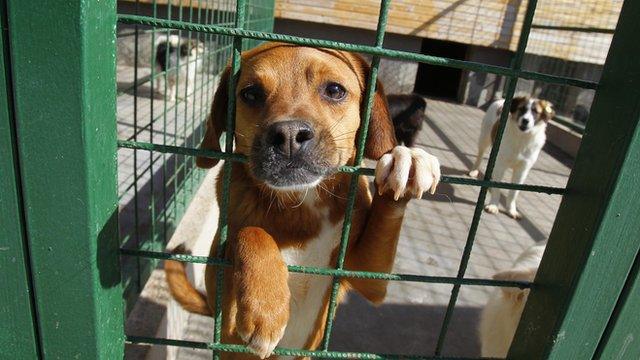Disease threat row over imported Romanian dogs
- Published
Dog rescuer and vet on UK's imported strays
A woman who has rescued hundreds of dogs from Romania insists the animals she has imported meet UK guidelines after concerns were raised about the practice.
The British Veterinary Association says vets are worried about the risk of rare diseases in imported dogs.
Romania introduced a law to tackle strays, allowing them to be euthanised if they are not adopted in 14 days.
Vanda Kizmaz said she was rescuing dogs from "kill centres".
Romania's problem with stray dogs stems from the country's communist period when some people had to move into apartment blocks that did not allow pets, and so had to abandon their dogs.
When it introduced the law in 2013 the number of strays in Bucharest was believed to be about 65,000, though the government said the figure had fallen significantly over the past six years.
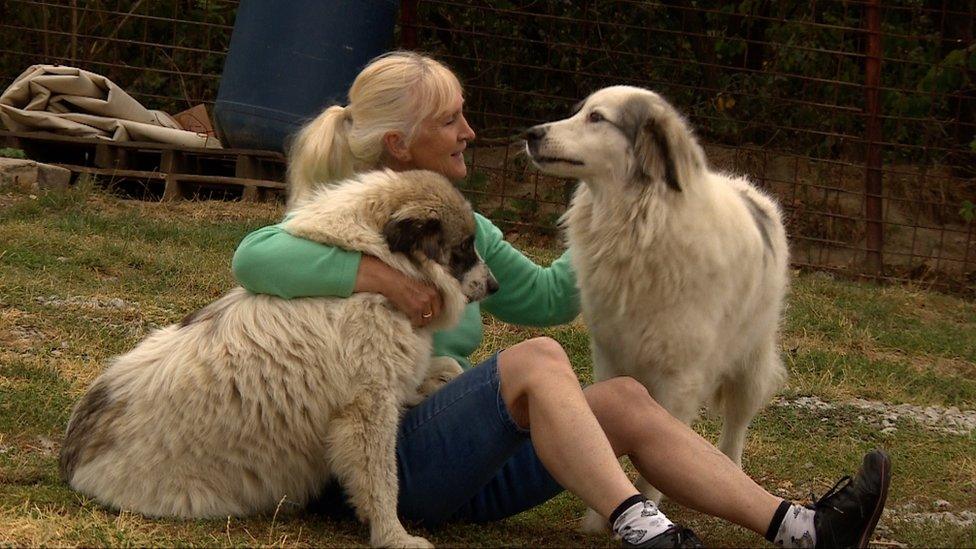
Vanda Kizmaz insists the dogs she rescues meet all the guidelines
Loren Ion, vice-mayor of Oravita in Caras-Severin County, the third largest county in Romania, said a solution had to be found.
"There is a huge pressure and people actually make complaints all the time," she said.
"The dogs can get aggressive, they actually roam around at the parks where the children are."
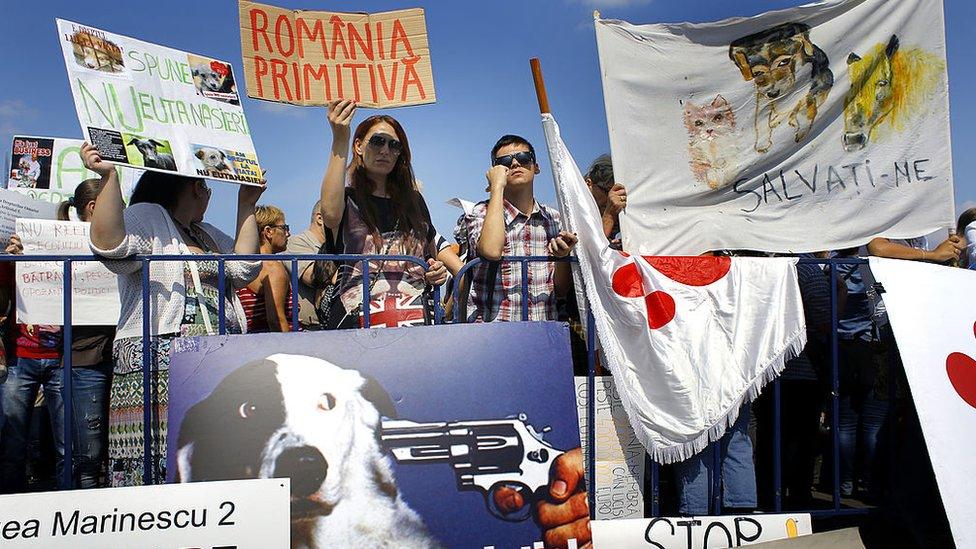
The introduction of the law in Romania in 2013 sparked protests on the streets of Bucharest
Ms Kizmaz, from Bourne, Lincolnshire, said seeing a dog in a public shelter inspired her to help.
"They are put into some of the kill centres and have literally got 14 days," she said.
"If they are not taken out within that time, then they can be euthanized and when I say euthanized it is not what we know of in the UK.
"We have heard stories about dogs' kennels being covered in sheeting and using caustic soda which will burn their lungs."
She has been importing 60 Romanian strays each month and said her dogs were fostered, vaccinated, socialised and obtained an EU Pet Passport before making the 1,400 mile (2,250km) trip.
BVA spokesman David Hopper he appreciated the efforts of volunteers such as Ms Kizmaz but still had concerns.
He said even dogs which met UK guidelines may still pose a risk and he would like to see a quarantine period introduced.
"We have inherited diseases that we have never had before and are in danger of getting other ones which we managed to eradicate in the past, like rabies," he said.
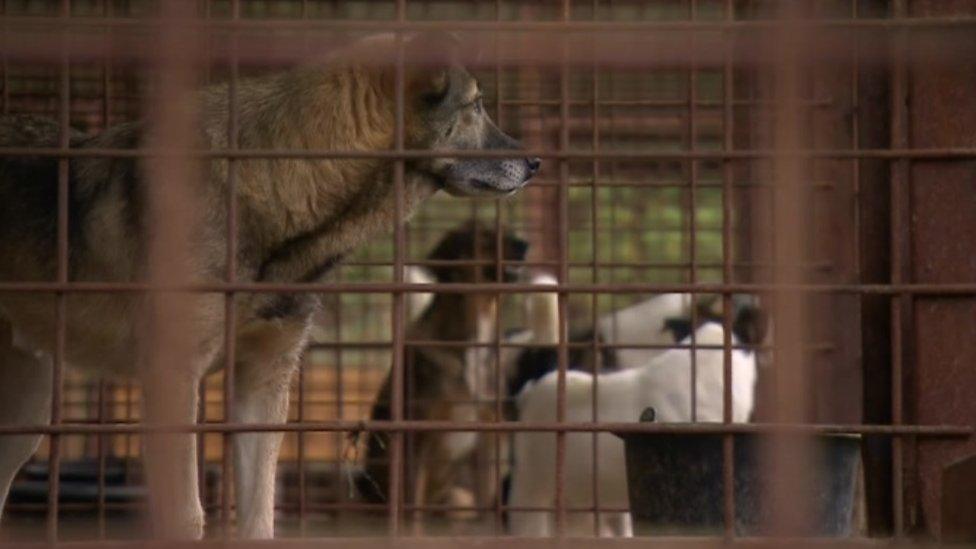
Ms Kizmaz says all the dogs she import are vaccinated and properly socialised before arriving in the UK
Other diseases that posed a risk, he said, included leishmaniasis, a parasite infection, external that infected the skin, kidneys, spleen, liver, eyes, and joints.
Mr Hopper said he had seen it in adopted strays despite the disease not being common in Romania.
"[It is] A dreadful disease and certainly one we want to keep out of this country," he said.
"We don't really understand the life cycles of a lot of these diseases and how they are transmitted.
"So really to bring them into this country is a very dangerous thing to do."
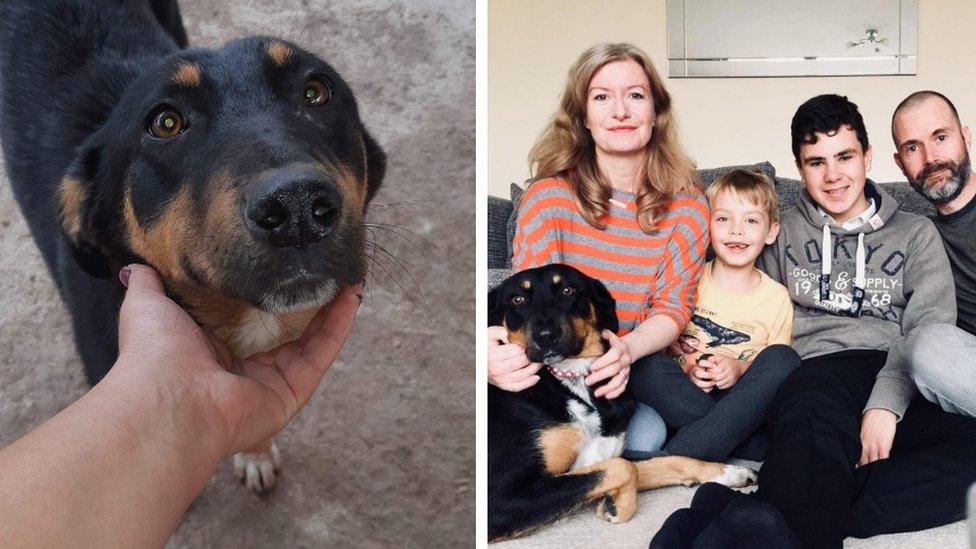
Hope was rescued from Romania and now lives with a new family in Brigg, Lincolnshire
The UK had a higher number of dog imports from Romania than any other country in the world in 2017.
Government figures did not specify if imported dogs were strays or were commercially bred but imports from Romania have risen from none in 2013 to 15,548 in 2017.
The RSPCA has also voiced concerns about adopting from abroad and would prefer people to consider British rescue organisations.
Olivia Duffill, from the charity, said: "Their behaviours might be totally different once they get into a home. Again, they might not have been exposed to home life, children, obviously that is an enormous risk."
Inside Out (Yorkshire and Lincolnshire) examines the issue of stray dogs being imported from Romania on BBC One at 19:30 BST on Monday 14 October and can also be seen afterwards on the iPlayer.
- Published14 October 2013
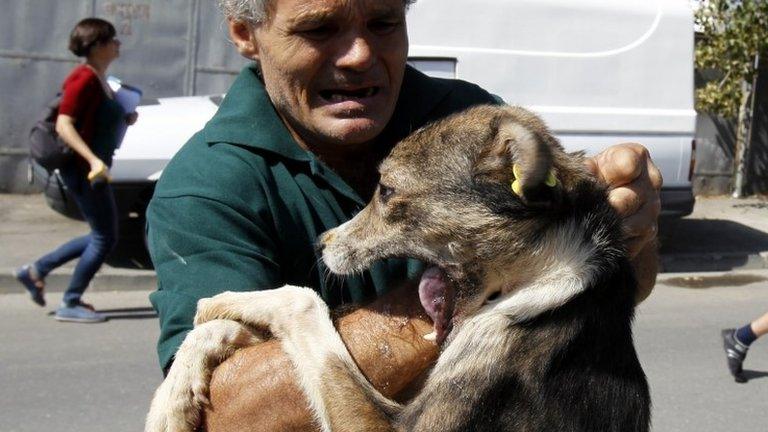
- Published9 September 2013
